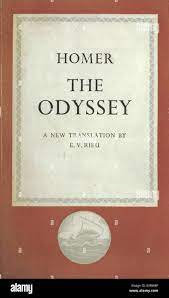The Odyssey Book 222 Best

For this assignment we will focus on the Odyssey Book 9 Lines 380-405. The traditional name for the discipline of Classics is Philology. The ancient grammarian/scientist/poet Eratosthenes referred to himself as a philologos, analogous to philosophos
The Odyssey Book
The traditional name for the discipline of Classics is Philology. The ancient grammarian/scientist/poet Eratosthenes referred to himself as a philologos, analogous to philosophos, but lover of words, rather than lover of wisdom. Philology studies the languages of Greece and Rome and these languages provide tools for understanding the culture. The philology paper is a short essay (2-3 pages) focused on one passage (10-30 lines) that makes an attempt at understanding through the tools of linguistic inquiry. Linguistic inquiry has many components, but one significant element is the kind of semantic study you can do using a lexicon.
The Odyssey Book
Focusing on one or two words and considering where else they are used and how can provide compelling insights into a passage or text. Do parallel instances of a word verify or complicate an idea of what it means in your chosen context. Or, if your word is a hapax legomenon, how do related words help to clarify its meaning? You can also focus on a stylistic reading, in which you pay close attention to how the passage is constructed: are there parallel constructions? Or constrasting ones? Is there a lot of repetition? Are there any puns? Are images vivid? Or confused? How do grammatical constructions contribute to the style of the passage?
The Odyssey Book
How do the choices of the poet work? These two can be combined, but the main point is that I want to see you engaging closely with the language of Homer in a specific context in a way that shows your knowledge of Greek and ability to synthesize information. In terms of format, you should use 12-point Times New Roman, with standard margins. Same Example: You should frame your paper with one main question. For instance, “what does the word πολύτροπος in 1.1 of the Odyssey mean in its immediate context (lines 1.1-10) and the broader contexts (the Odyssey, and then also the Iliad and other Greek poetry, and literature)?”
The Odyssey Book
I might then note that it is the first epithet for Odysseus in the poem, defining him before we even hear his name (which is delayed until line 21). I might consult Cunliffe and find other places where it is used in the Odyssey and/or Iliad, or consult LSJ for where it appears more widely. I might mention that it is used of Hermes in the Homeric Hymn to Hermes, suggesting affiliation between god and hero (I would also note that the Hymn to Hermes was probably written considerably later than the Odyssey, but probably avoid claiming that one “influenced” the other). https://youtu.be/V3eXut1f5HI
The Odyssey Book
I might also observe that the adjective is a compound of πολύς and τροπός, and note that the first part is repeated three times in the first four lines. I might wonder if ὃς μάλα πολλὰ πλάγχθη is just a restatement of the adjective. Does the relative clause add anything new? I might also reflect on the verbs in the subsequent lines ἔπερσε, ἴδεν, ἔγνω, πάθεν. Do these echo the sense of τροπός? These reflections could lead me back to a question, now slightly different: how well do the notions of abundance/frequency (πολύς) and turning (τροπός) define Odysseus in the context of these opening lines?
The Odyssey Book
English Translation of the lines chosen: https://www.perseus.tufts.edu/hopper/text?doc=Perseus%3Atext%3A1999.01.0136%3Abook%3D9%3Acard%3D360 Ancient Greek Translation of the lines chosen: http://www.perseus.tufts.edu/hopper/text?doc=Perseus%3Atext%3A1999.01.0135%3Abook%3D9%3Acard%3D360 ** You can chose anything you want to focus on in that section like specific words and such as stated in the instructions above** Also below is a website of a dictionary if needed: https://lsj.gr/wiki/Main_Page
Additional Files







